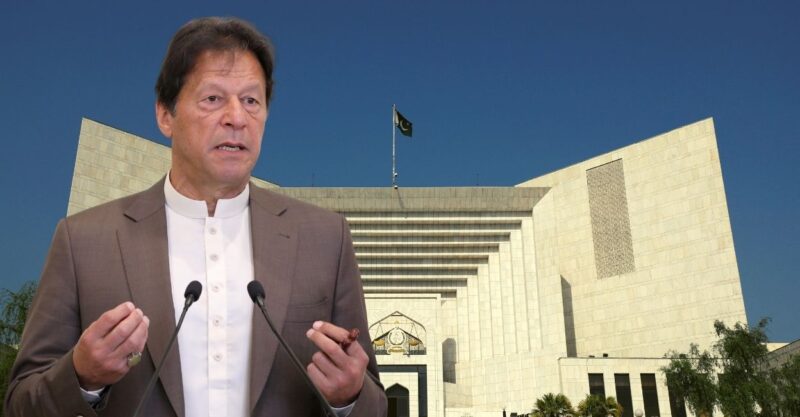Islamabad: Pakistani Supreme Court is a meeting for the third time today to rule the legality of political maneuvers who lead the Prime Minister Imran Khan to dissolve the National Assembly during the weekend and call for new elections.
The court said it would only rule whether the representative of the speaker acted against the constitution in refusing to allow voting to the movement of not believing in PM Khan – even though it would affect the dissolution of assembly.
It also won’t consider the alleged “foreign conspiracy” that PM Khan said the opposition joined her adorable.
So what is the possible court decision, and what will be a consequence? Here follow the possible scenario:
It’s not our business
The court can decide that the national assembly is responsible for its own regulations and regulations, and the refusal of representatives of the speaker – a Khan loyalist – to choose a sound is a problem for parliamentarians to complete.
However, some legal analysts argue that it is a problem for the court – according to the Constitution, the Prime Minister cannot ask the President to dissolve the Assembly if the sound is not delayed.
However, the court can decide the decision to reject voice effectively means that the problem is no longer delayed, sending problems back to assembly – which will mean the dissolution.
Vice speaker acts illegally
In this case, it can effectively cancel the next decision to dissolve the parliament, so that parliamentarians can be ordered to regroup and Khan will almost certainly be burned outside the office.
However, there is a precedent.
In 1988, Muhammad Khan Junujo appealed to court after the Assembly was dissolved at the time – President General Zia-ul-Haq, who had taken power in the military coup in the previous year.
It agreed that the government had been dissolved unconstitutionally, but decided that because the election was announced, it was the best to continue.
There are no dates set for elections in the current crisis, but similar decisions can appear.
Also, in 1993, the court ruled President Ghulam Ishaq Khan illegally dissolved the Assembly – then with Nawaz Sharif as Prime Minister.
Even though the government continued its business, it lasted less than two months before being dissolved again.
Vice speaker acts legally
If there is no unwanted court rule, it looks like all the next action will also stand and Pakistan will go to the poll in 90 days.
The rancor and bitterness of this problem have explored means, however, that the country faces more political uncertainty.
The past selection has fallen apart, messy, and the campaign season begins during the fasting month of Ramadan and continuing through the hottest period this year will eliminate tension and increase tensions.
The stakes have also been raised by rhetoric anti-as PM Khan – potential flame points during political demonstrations.
No appeal to our decision
The Supreme Court has received many petitions and countersitits in Saga.
But it was said it took the case of “Suo Motu”, which meant to his own account.
The Supreme Court seemed to be independent, but the right activist said the benches had previously been used by civil and military administration to offer their offerings throughout Pakistani history.
There is no decision to please all parties, but as the highest court in the country will also be responsible for hearing the possibility of appealing to its own rules.
However, it seems impossible, and definitive decisions will likely look back at the status quo and round other political quarrels.
Legally, the election must be held before October 2023.
